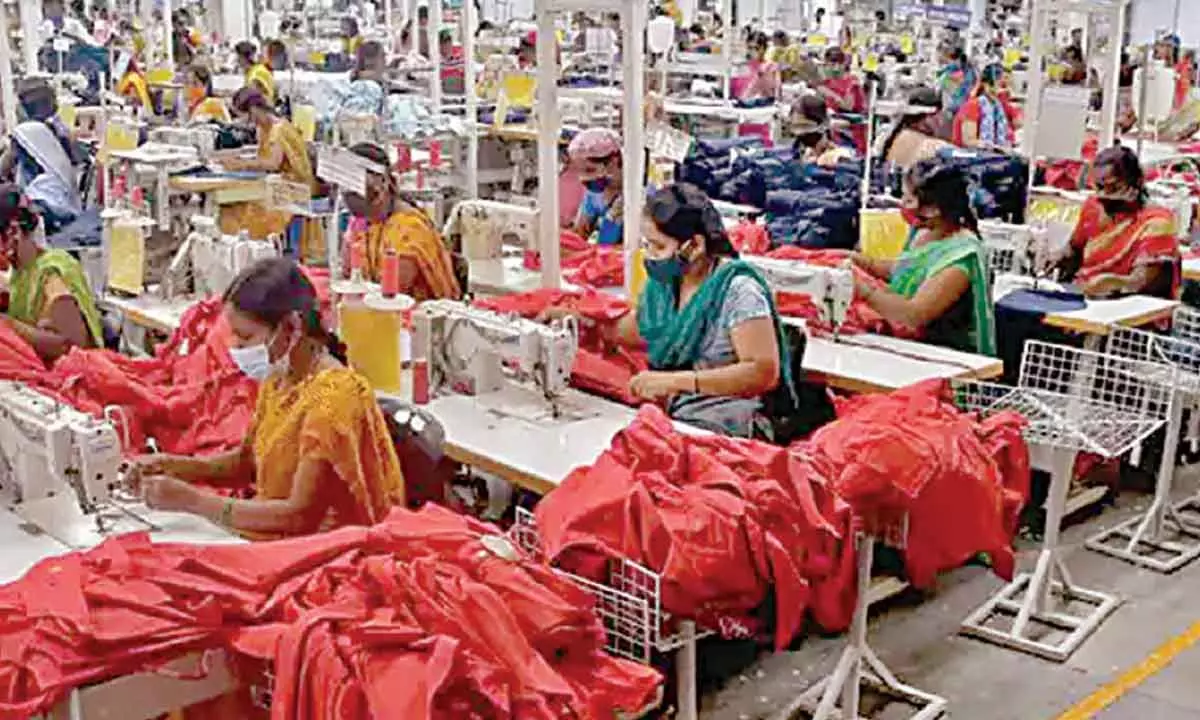Efforts to empower workers must be consistent and pronounced
Focus on women workers' welfare has improved and is a priority for many factories
image for illustrative purpose

The concern of a worker for the factory’s growth can come about by their empowerment. More efforts are required towards the condition of women workers. This will benefit the industry as women are more productive and disciplined.
This year’s International Women's Day was celebrated with great passion and enthusiasm. Now after a month, we will have the same spirit for the Labour Day also.
The textile industry, being one of the largest employers, especially of women and mostly uneducated or semi-literate workers, has a great responsibility towards women and labour.
With the growing positive impact of compliance, auditing, monitoring, CSR activities and marketing gimmick there is a lot of improvement regarding workers' conditions but it is also right to say that in the textile value chain, right from grassroots manufacturing to retail, there is a lot more to do.
Various forms of discrimination, lack of safety and job security, absence of social security, unrealistic or hard targets and physical and mental fatigue are the turmoil working women face, especially as they have to also manage the domestic front.
Over the years while working as a professional, now running my small manufacturing unit and being associated with many retailers, and brands, I am more than sure that focus on workers' empowerment has improved and is a priority for many companies.
It is natural as women's welfare and overall empowerment of the workforce does not cost much. Of course, it eventually depends on the decision makers' mindset and their approach.
In the manufacturing segment, ensuring comfortable things like offering transportation, nutrition food at concessional rates, thrust on financial literacy, regular health check-up camps, supporting education of their children, having sanitary pad vending machines, respecting workers and acknowledge their work, thinking about their promotion, making sure their regular counselling can bring 360-degree change in the worker's life while it doesn't cost much to the companies.
All this and such efforts not only increase the availability of the workforce, improve their attendance in manufacturing units, and increase their productivity levels and dedication towards the employer.
All in all it's a win-win situation for all. The concern of a worker for the factory’s growth can come about by their empowerment. More efforts are required towards the condition of women workers. This will benefit the industry as women are more productive and disciplined.
Despite a large number of benefits and minimum investments, there are many textile units, especially in SME and unorganised sectors, which don’t even follow the law of the land and deny facilities like Employees' State Insurance (ESI).
If the factory management doesn't have time to be involved in such activities or they don't have the inclination to such priorities they can always approach NGOs, who manage such aspects in a more refined manner and get good results.
Over the years, worker unions have weakened in the industry. For instance a big textile industry in a big state has been facing issues regarding minimum wages and litigations in courts for many years.
The role of state governments and bureaucracy in this aspect is crucial as their responsibilities go beyond implementation of labour laws, like skill development, collaboration with the industry on various workers’ related schemes (like offering concessional bus pass, workers’ hostels and accommodation) increasing efforts of reverse migration and empowering workers as small entrepreneurs.
At the time, when India is moving towards becoming one of the largest economies and a strong manufacturing base, it is time to increase the existing efforts and come up with newer initiatives, including for the textile industry.
(The writer owns a garment manufacturing setup in a rural area, which employs mostly women workers).

